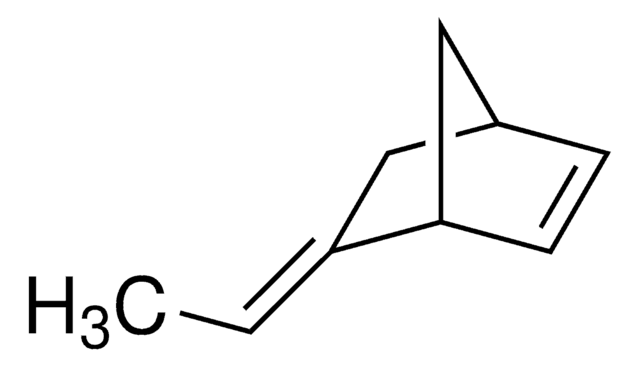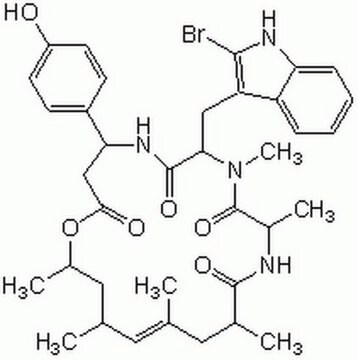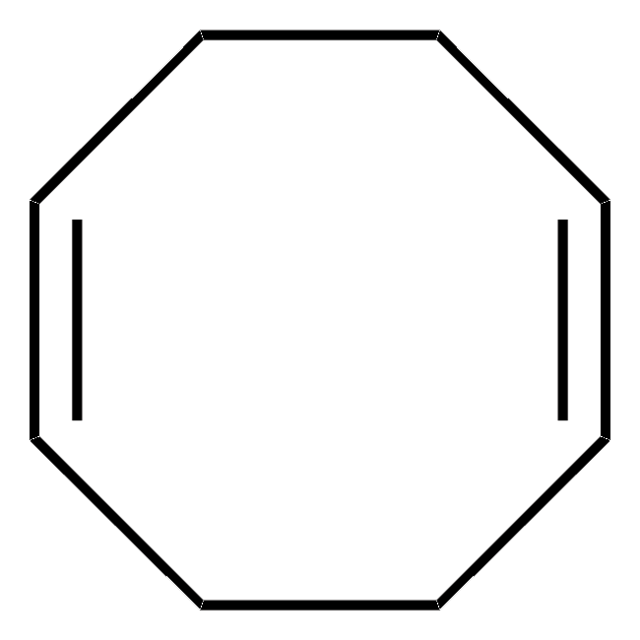Wichtige Dokumente
454338
Dicyclopentadien
contains BHT as stabilizer
Synonym(e):
4,7-Methano-3a,4,7,7a-tetrahydroinden, Cyclopentadien dimer, DCPD
About This Item
Empfohlene Produkte
Assay
≥96.0%
Qualitätsniveau
Form
liquid
Enthält
BHT as stabilizer
bp
170 °C ((lit.))
170 °C (lit.)
mp (Schmelzpunkt)
33 °C ((lit.))
33 °C (lit.)
Löslichkeit
water: slightly soluble 0.02 g/L at 25 °C
Dichte
0.986 g/mL at 25 °C ((lit.))
0.986 g/mL at 25 °C (lit.)
SMILES String
C1C=CC2C3CC(C=C3)C12
InChI
[1S/C10H12/c1-2-9-7-4-5-8(6-7)10(9)3-1/h1-2,4-5,7-10H,3,6H2/t7-,8+,9?,10?/m0/s1]
1S/C10H12/c1-2-9-7-4-5-8(6-7)10(9)3-1/h1-2,4-5,7-10H,3,6H2/t7-,8+,9?,10?/m0/s1
InChIKey
[HECLRDQVFMWTQS-AFWXGSBKSA-N]
HECLRDQVFMWTQS-AFWXGSBKSA-N
Suchen Sie nach ähnlichen Produkten? Aufrufen Leitfaden zum Produktvergleich
Verwandte Kategorien
Allgemeine Beschreibung
Anwendung
- In the preparation of CF/p-DCPD ((carbon fiber/ poly-dicyclopentadiene) composites by VARTM (vacuum-assisted resin transfer molding) process.
- In the preparation of η5-cyclopentadienyltris(dimethylamido)zirconium catalyst.
- In the synthesis of cellulose – maleic anhydride– dicyclopentadiene copolymer matrix by free radical polymerization.
Leistungsmerkmale und Vorteile
- Low shrinkage
- Cost-effective
- Reduced emissions of styrene
- Fast curing in thin layers.
Signalwort
Danger
Gefahreneinstufungen
Acute Tox. 2 Inhalation - Acute Tox. 4 Oral - Aquatic Acute 1 - Aquatic Chronic 1 - Eye Irrit. 2 - Flam. Liq. 3 - Skin Irrit. 2 - STOT SE 3
Zielorgane
Respiratory system
Lagerklassenschlüssel
3 - Flammable liquids
WGK
WGK 3
Flammpunkt (°F)
89.6 °F - closed cup
Flammpunkt (°C)
32 °C - closed cup
Persönliche Schutzausrüstung
Eyeshields, Faceshields, Gloves, type ABEK (EN14387) respirator filter
Hier finden Sie alle aktuellen Versionen:
Besitzen Sie dieses Produkt bereits?
In der Dokumentenbibliothek finden Sie die Dokumentation zu den Produkten, die Sie kürzlich erworben haben.
Global Trade Item Number
| SKU | GTIN |
|---|---|
| 454338-1KG | 4061837323928 |
| 454338-500G | 4061832340449 |
| 454338-2.5KG | 4061832340432 |
| 454338-100G | 4061832340425 |
Unser Team von Wissenschaftlern verfügt über Erfahrung in allen Forschungsbereichen einschließlich Life Science, Materialwissenschaften, chemischer Synthese, Chromatographie, Analytik und vielen mehr..
Setzen Sie sich mit dem technischen Dienst in Verbindung.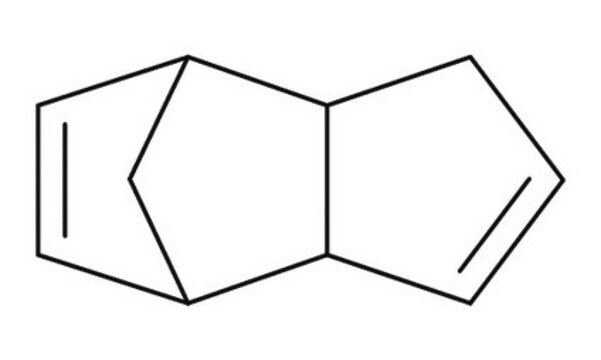
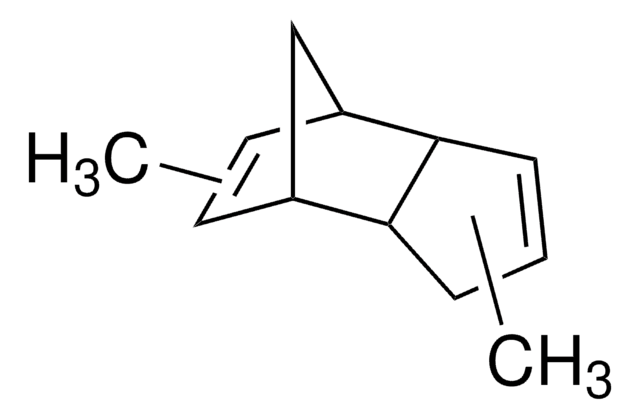
![cis-endo-Bicyclo[2.2.1]hept-5-en-2,3-dicarbonsäureanhydrid 99%](/deepweb/assets/sigmaaldrich/product/structures/463/743/23d4e603-9c88-402a-96a9-68cd71d62279/640/23d4e603-9c88-402a-96a9-68cd71d62279.png)
